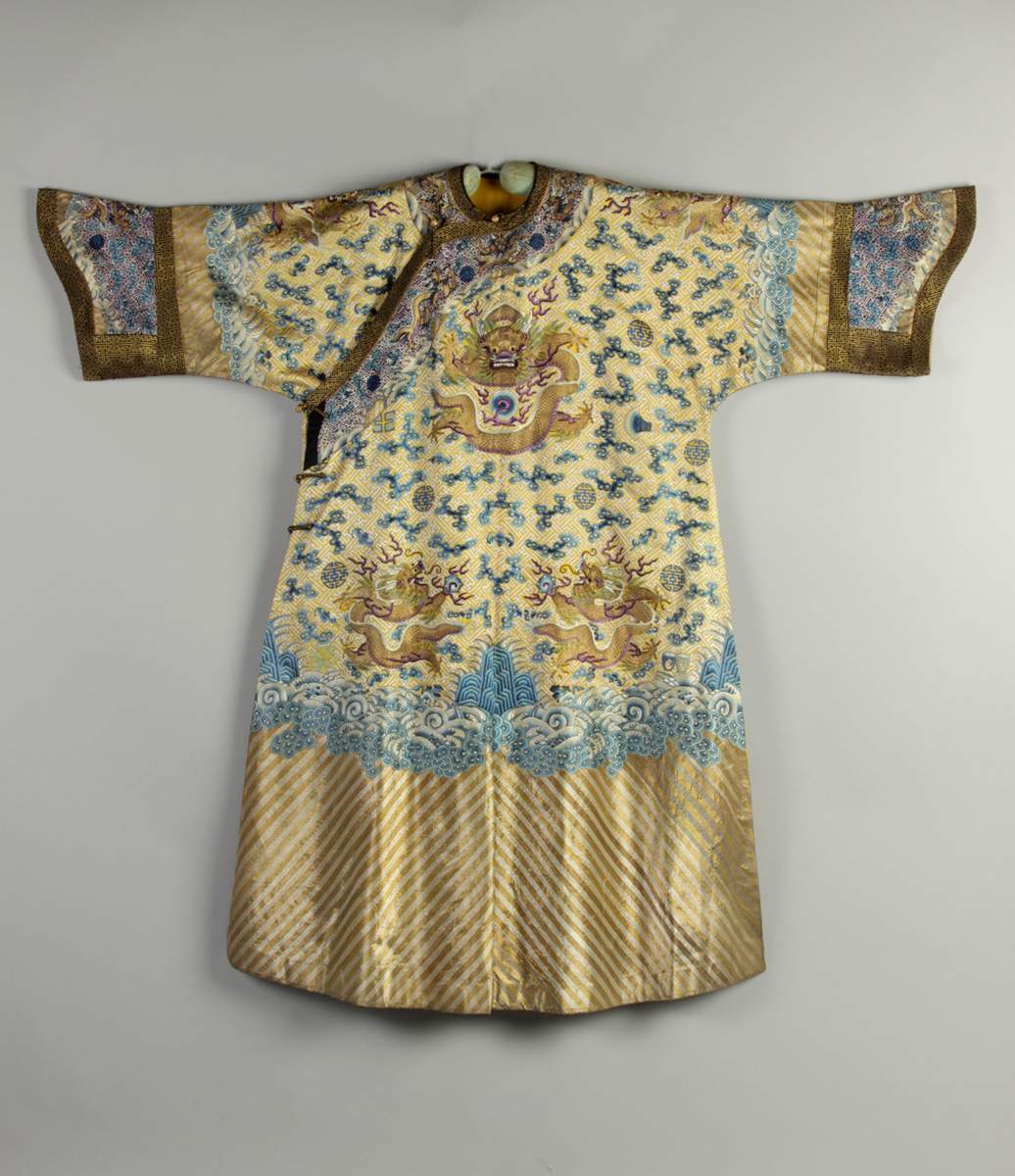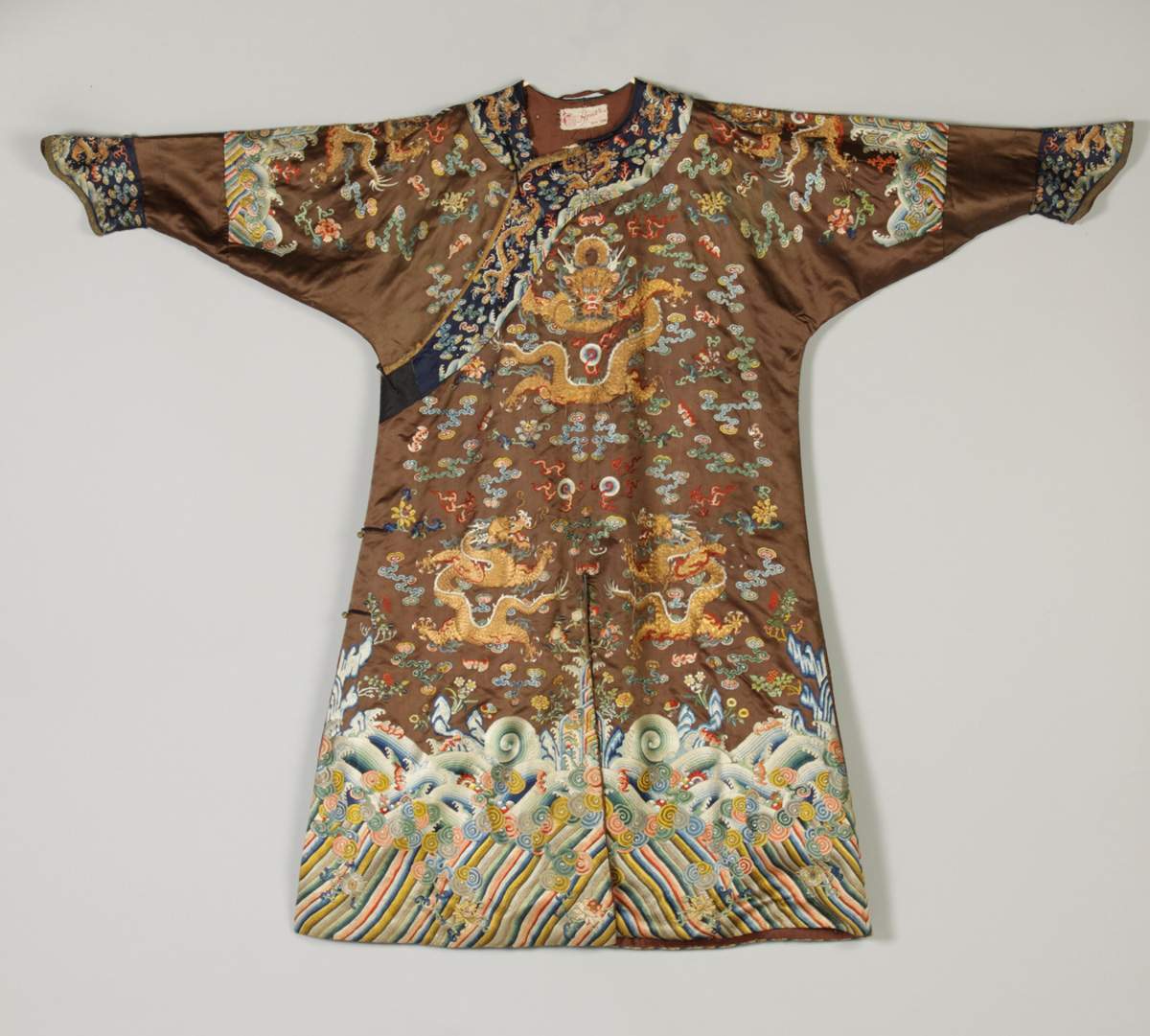A fine Chinese Imperial celadon jade ruyi sceptre 18th / 19th century, the slender curved sceptre elegantly carved with a poem by the Qianlong Emperor, within a well defined border, the shaft carved in relief with iris, lingzhi and other flowers issuing from a small group of rocks, and with a silk tassel to one end, the calligraphy with traces of gilding, 36.8cm. Provenance: a private collection, London. The poem, included in Yuzhi shiji (Poetry Collection by His Majesty), is titled Yong Bairu Ruyi (Praise the White Jade Ruyi) reads: 'Ying Chi He Tian Yu, Liang Gong Zhuo Qu Qiong. Wei Jian Dai Wei Cuo, Ri Bai Zi Han Ying. Di Ji Gong Sun Bian, Hai Chi Hui Zi Ming. Zhi Hui Gong Dai Yu, Jing Mo Zu Chen Qing'. Which approximately translates as: 'This piece of Hetian jade, about a foot long, has been carefully worked by the best artisan, into a beautiful piece of jade hook. In the world filled with different voices, such as the arguments of the ancient political debaters Gongsun and Huizi, this Ruyi, as a symbol of the authority, conducts without any need of speech, displays the beauty of silence and serenity'. The seals translate as Gu Xiang (Fragrance of Antiquity) and Tai Piao or Tai Pu (Supreme Simplicity). With thanks to Ching-Yi-Huang of SOAS for her help in cataloguing this lot. The ruyi sceptre is a wish granting wand and amongst the most auspicious of Chinese symbols. Ruyi literally means 'as you wish' and implies perfect satisfaction. The head is usually shaped as a lingzhi fungus, an important symbol of longevity, and the sceptres are often decorated with further auspicious Buddhist symbols such as bats and peaches. Ruyi were customarily given to the emperor and empress on occasions such as birthdays, and also used as gifts among other members if the Qing court.
A fine Chinese Imperial celadon jade ruyi sceptre 18th / 19th century, the slender curved sceptre elegantly carved with a poem by the Qianlong Emperor, within a well defined border, the shaft carved in relief with iris, lingzhi and other flowers issuing from a small group of rocks, and with a silk tassel to one end, the calligraphy with traces of gilding, 36.8cm. Provenance: a private collection, London. The poem, included in Yuzhi shiji (Poetry Collection by His Majesty), is titled Yong Bairu Ruyi (Praise the White Jade Ruyi) reads: 'Ying Chi He Tian Yu, Liang Gong Zhuo Qu Qiong. Wei Jian Dai Wei Cuo, Ri Bai Zi Han Ying. Di Ji Gong Sun Bian, Hai Chi Hui Zi Ming. Zhi Hui Gong Dai Yu, Jing Mo Zu Chen Qing'. Which approximately translates as: 'This piece of Hetian jade, about a foot long, has been carefully worked by the best artisan, into a beautiful piece of jade hook. In the world filled with different voices, such as the arguments of the ancient political debaters Gongsun and Huizi, this Ruyi, as a symbol of the authority, conducts without any need of speech, displays the beauty of silence and serenity'. The seals translate as Gu Xiang (Fragrance of Antiquity) and Tai Piao or Tai Pu (Supreme Simplicity). With thanks to Ching-Yi-Huang of SOAS for her help in cataloguing this lot. The ruyi sceptre is a wish granting wand and amongst the most auspicious of Chinese symbols. Ruyi literally means 'as you wish' and implies perfect satisfaction. The head is usually shaped as a lingzhi fungus, an important symbol of longevity, and the sceptres are often decorated with further auspicious Buddhist symbols such as bats and peaches. Ruyi were customarily given to the emperor and empress on occasions such as birthdays, and also used as gifts among other members if the Qing court.















Try LotSearch and its premium features for 7 days - without any costs!
Be notified automatically about new items in upcoming auctions.
Create an alert